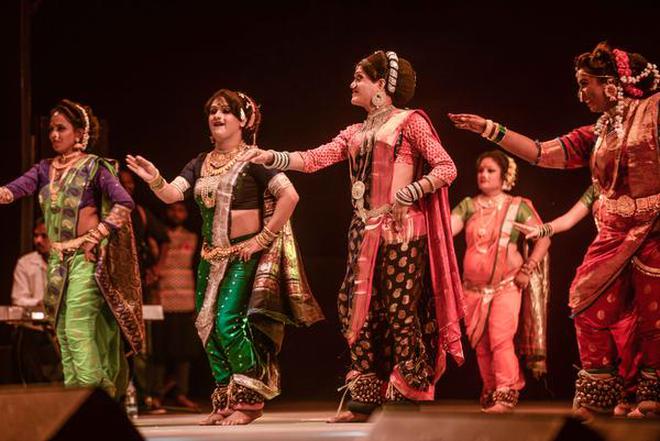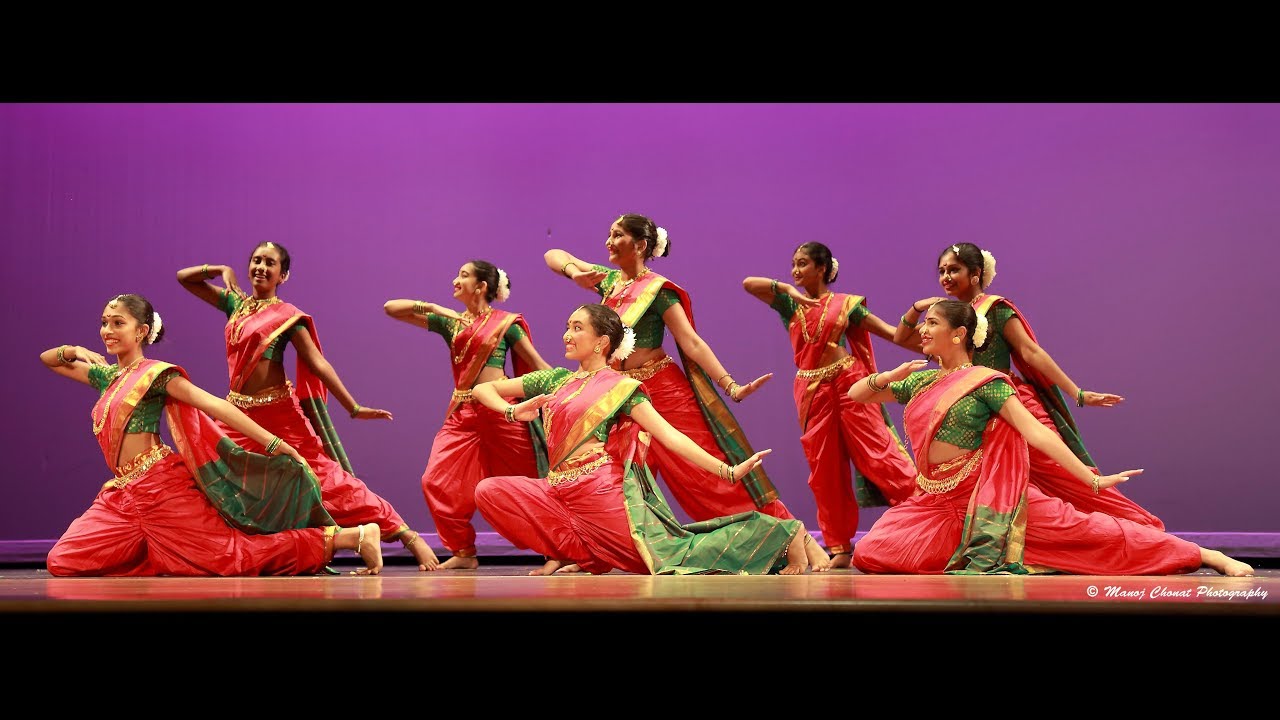Marathi Lavani of Maharashtra
A popular genre of music in Maharashtra, lavani is a combination of traditional songs and dances performed to the dholki. Dholki is a percussion instrument. The beats of the dholki and the elegant dance performed have a powerful rhythm.
Lavani has helped popularize the Marathi culture and folk theatre. Lavani is usually performed by female dancers wearing nine-yard long sarees in Maharashtra and Madhya Pradesh.

Lavani is derived from the Marathi word lavanya, means beautiful. Another tradition states that lavani is derived from a Marathi word lavane.
In a traditional point of view, lavani deals with different matters of society, religion and politics. The songs used are erotic, sentimentally and the dialogues are satirical.
Lavani was originally an entertainment for weary soldiers. Lavani songs, usually sung along with dancing, is mostly erotic.
Lavani developed into two distinct performances, namely Phadachi Lavani and Baithakichi Lavani. The Lavani sung and enacted in a public performance before a large audience in a theatrical atmosphere is called Phadachi Lavani.
And, when the Lavani is sung in a closed chamber for a private and select audience by a girl sitting before the audience, it came to be known as Baithakichi Lavani.
Costume Of Lavani

A typical lavani costume includes a nine-yard long saree, a bun on top of their hair adorned with flowers, heavy jewellery that includes payal, kamarpatta, earrings, bangles and necklaces.
Their outfit is complete with a bindi on their foreheads. The nine-yard saree worn is called a nauvari. It’s said to be more comfortable than regular sarees.
“The main subject matter of the Lavani is the love between man and woman in various forms.
Married wife’s menstruation, sexual union between husband and wife, their love, soldier’s amorous exploits, the wife’s bidding farewell to the husband who is going to join the war, pangs of separation, adulterous love – the intensity of adulterous passion, childbirth: these are all the different themes of the Lavani.
The Lavani poet out-steps the limits of social decency and control when it comes to the depiction of sexual passion.”
K. Ayyapapanicker



